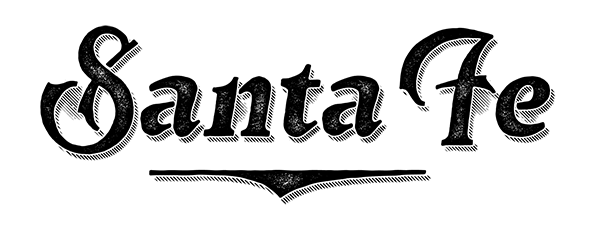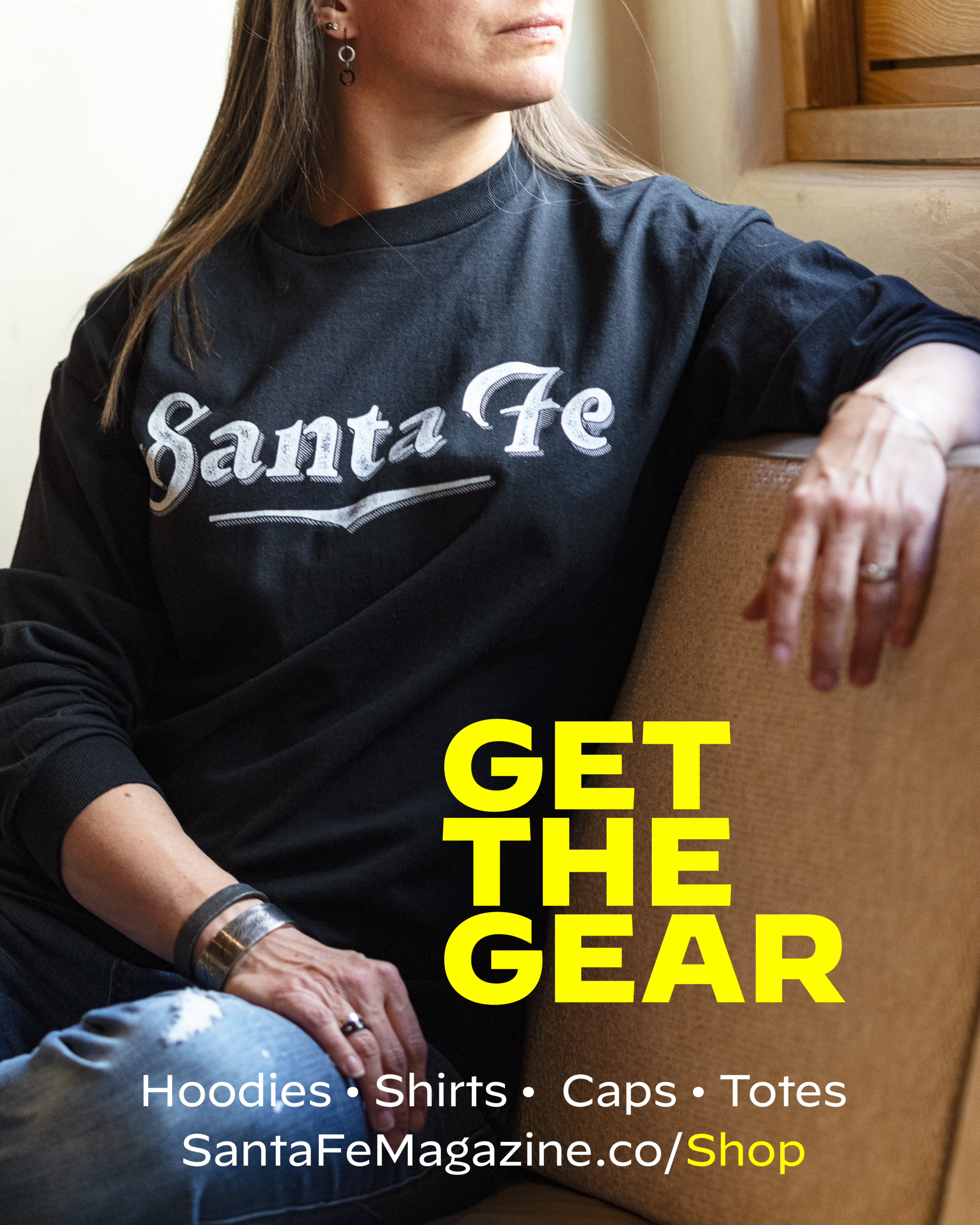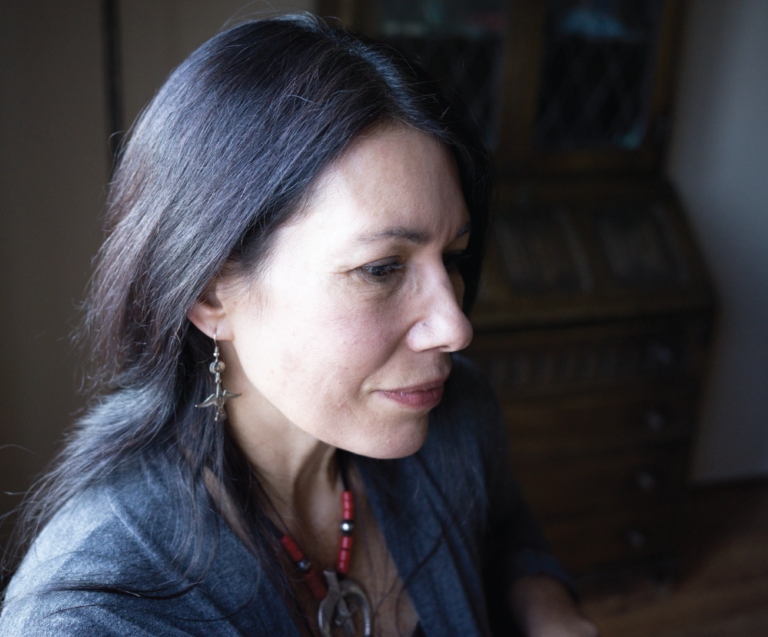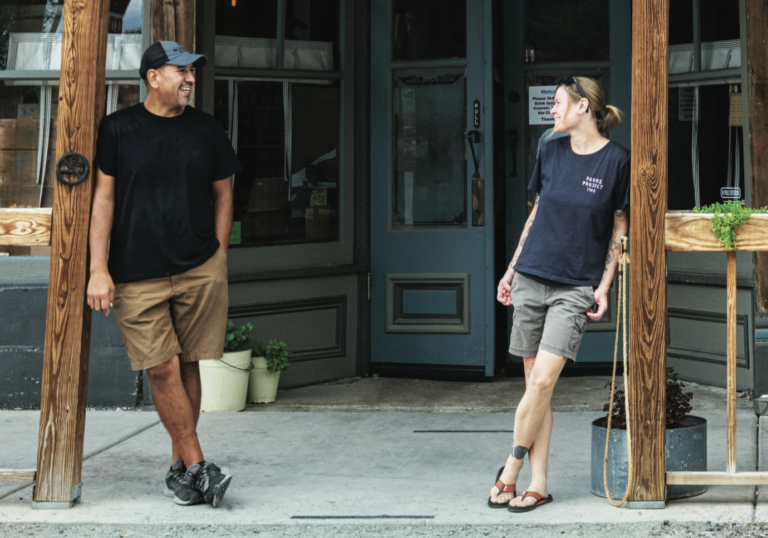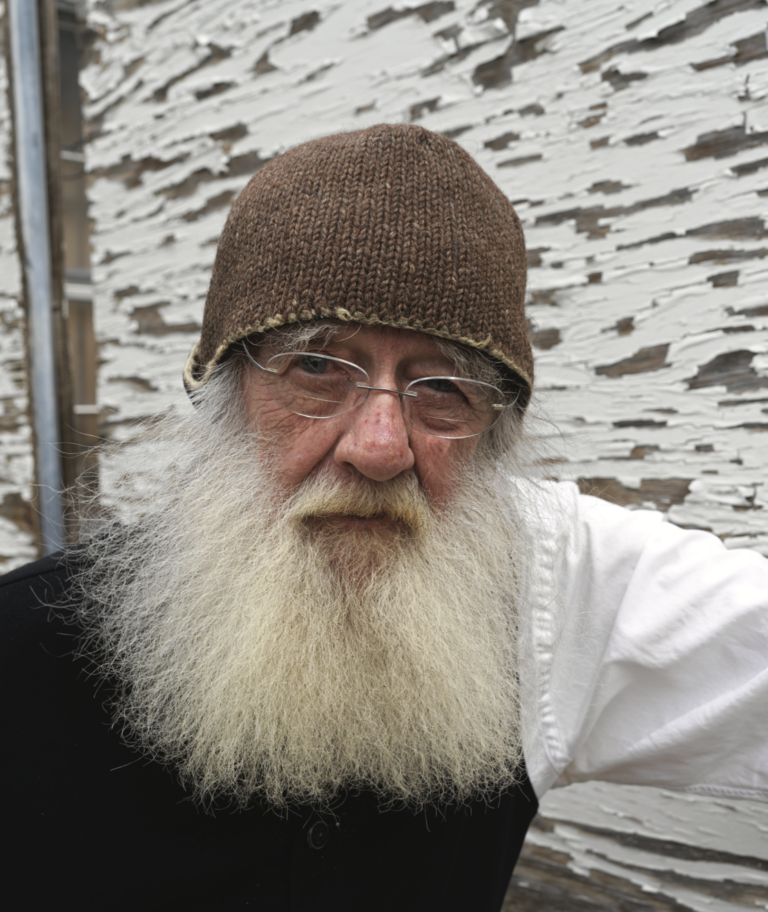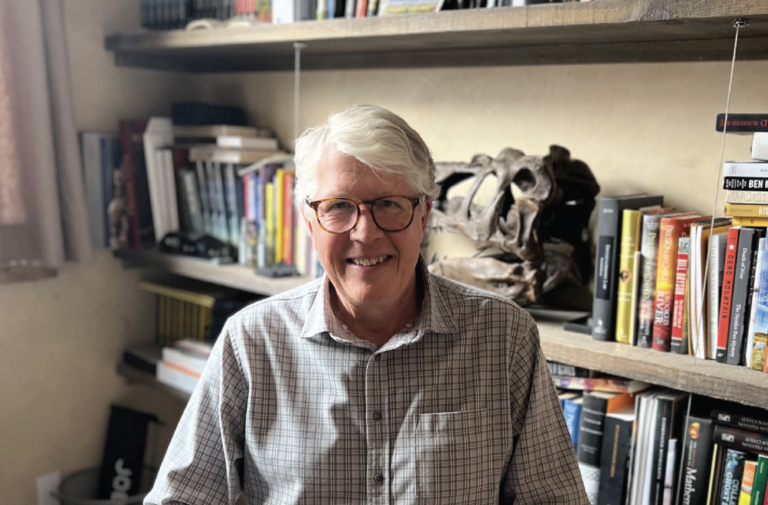PAST IS NOT ALWAYS PROLOGUE. Robyn told me about some of the heart breaking, random, and utterly traumatic deaths of people who were very close to her. And how she responded.
Now, at 39, as one of the youngest artistic directors in the country, she is leading the Santa Fe Playhouse – celebrating its old age, heritage, promise and new possibilities.
All her training, talent, and what she has learned from the tragedies seems in evidence by what she is doing now. I watched as she began a first rehearsal for “Sweat” – it was the beginning, when everything is ragged, uncertain, probing, fun, experimental, on the mark, or totally off base. Sometimes all these things, and often at the same time.
With her actors, she was at home and focused, with the comfort and authority of someone who had a vision. She was asking, listening, and revising based on what she was seeing and hearing, from how the actors responded to her words, to one another, to her direction, and to the play itself. I saw an improvisation on the art and science of digging deeper, to get to what was the true and best way to tell the story.
I attended a company fundraiser and saw an ebullient Robyn, quite at home in front of hundreds of people. She was witty and funny, often at her own expense, asking for donations, all of which requires the skills of actor, director, and, yes, saleswoman.
Did you know you wanted to be an actor when you grew up?
I grew up here in Santa Fe. I used to write and direct my sister and all of our friends in little plays when we were young. I was always very dramatic and loved attention. I had an older brother, Brian, who passed away when I was 14.
Was this a surprise?
Yes. It was a heroin overdose, and it was the first time he ever did heroin. The person who he was with could have called for help and she didn’t. At 14, it was just this shock into my life. Yes. My mother went catatonic, my father was a workaholic. I didn’t want to stay in Santa Fe. So I left home when I was 14 and went to a boarding school in Massachusetts. I ran, totally. I left everything I knew and I never looked back.
You ran, you left, because you didn’t want to be triggered by it?
My friends and the people I loved weren’t that interested in school, they were more just interested in the social aspect and smoking pot and doing cocaine. Because of Brian, I wasn’t interested in that and I didn’t want to be triggered, I didn’t want to think about it at all. I left everything I knew and I never looked back.
Did you develop your interest in drama at school?
My mom, two years after Brian died, called and said, Are you happy? I remember this conversation perfectly. And I said, What does that mean? What is happiness? And she said, Well, I remember the last time you were happy was when you were acting, when you were on stage. Do you still want to act? She said, I found this school, North Carolina School of the Arts, and they have a senior year high school program, and it’s free for North Carolina residents. She had moved to North Carolina. And I thought, Well, what the hell?
When I went to North Carolina, I totally felt like I was back with my people, in my element. I was becoming alive again, and challenged in ways that I hadn’t been in years.
In the process of acting, you’re becoming one with your character, right? Do you think acting was another form of escape?
Yes, it’s a form of escape. Even as the artistic director of the playhouse, sometimes I wished that there was a character of Robyn, the artistic director.
But I think it’s also a spiritual practice, a way to explore different perspectives and circumstances that I haven’t experienced. Or there are aspects of a character that allow me to tap into parts that I’ve buried.
And after school?
I went to work in The Guthrie Theater. That showed me what a professional theater looked like, but I think it was too sheltered.
Did you think you were too young to go to the Guthrie, right after school?
I was at the School of the Arts for five years. I learned the craft incredibly well, but I didn’t learn that I needed to look at myself as my own small business, that I had to market myself, I had to brand myself. I mean, they didn’t teach us how to create a resume or to do our finances. Those are things that I think an arts education lacks.
After school, I moved to Brooklyn and was there for eight years and met the most extraordinary people, the most creative-driven people. I was doing a lot of writing, but then, in 2019, my writing partner Zach passed away in his sleep. And my mother had a stroke in that same week.
You had three huge losses before you were 40.
Yeah. That threw me in a completely different direction because my MO is to go away, to change everything.
That’s what you did when you were young, the first time. Is that what you continued to do?
With my brother, when was 14, I didn’t have any kind of tools to help me, and I wasn’t interested in processing any of it. But with Zach, I was more prepared to screw up, to grieve.
If there’s such a thing as being prepared.
Yeah, there are things you get at 36 that you don’t understand when you’re 14.
And there’s such a thing as being an old 36 or a young 36; our consciousness is not just chronological. So what brought you to the playhouse? What was the event, the signal event, that got you there?
Just before Zach died, the artistic director contacted me and said, I’m leaving the playhouse. I think you would be really great at this job. I was like, Well, you gotta be crazy. I talked to Zach about it, and I thought, Maybe we could go try out Santa Fe. I applied, but Zach passed before my interview. I don’t know if I would’ve taken the job if that didn’t happen.
There’s something beautiful that happens when somebody close to you dies. At least for me, there is a state of grace that happens in the immediate aftermath.
What is that?
It’s actually being present in your life and, simultaneously thinking, I will never be with this person again, but, I’m still here. And, What’s important to me?
Then something wild happened. I almost died when we were preparing for his memorial. I was stung by a wasp two weeks before he died, and I had a really severe reaction, but didn’t really think about it. And then I was working in the garden, blaming myself for his death and asking the universe for a message. Out of nowhere, this wasp stings me right on my ass, and within an hour I was in anaphylactic shock. And it was the most peaceful I’d felt. I just went, Okay.
What do you deduce from that experience?
Zach was saying it like it is: Stop blaming yourself! You gotta wake up and move on and just be grateful for what you have.
So do you think that spirits communicate from another place?
I’d like to think that.
We all would like to think that. So you eventually did wind up at the Playhouse. Most 36-year-olds don’t get a chance to be an artistic director. What made you think you could do it? What made them think you could do it?
I have no clue, man. I think they thought I would be a good option because I’m from Santa Fe and I’m a woman.
I can tell you with complete clarity and honesty that when I took this job, I did it because I could see no other option. I really didn’t know what I was doing. I never wanted to be an artistic director. I didn’t know what an artistic director did. I knew that I didn’t know what to do and that my dad lived here and I could live in his backyard. That’s all I knew.
You bring a fresh perspective, right? Out of all of this, here you are. What do you do differently than other places?
You have to remember that I started three months before COVID hit, which was great because every time I fucked up, I could blame it on COVID! I had this two-year period in that bubble when I was learning about what an artistic director did. I read a bunch of plays and I talked to lots of people in the community about what stories they wanted to hear, what stories they thought other people need to hear.
Taking over Santa Fe Playhouse after these recent traumatic experiences of loss…how do you do it?
I have had no work-life balance. It’s just been work, and that’s been great. I needed that. I am lucky enough that there are incredible people in this world who believe in me because if I didn’t have them, no way would I be here today.
Plus, I really thrive from being challenged. And luckily, I’m great at telling stories. I love what I do.
More at santafeplayhouse.org
Photo SFM
